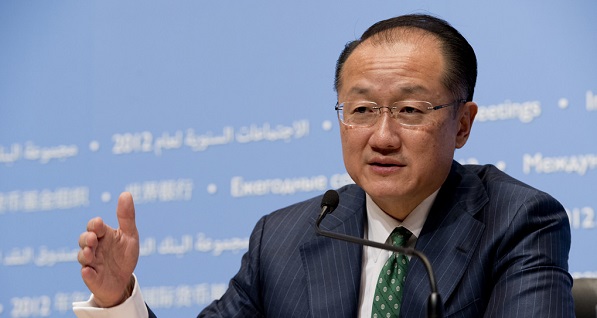Jim Yong Kim resigns
January 9, 2019 | Expert Insights

The World Bank president, Jim Yong has announced that he would step down in February and join a private infrastructure investment firm. His resignation has caused some uncertainty over the World Bank’s leadership.
Background
The World Bank is primarily, an international financial institution that provides loans to countries of the world for capital projects. It comprises two institutions: The International Bank for Reconstruction and Development (IBRD), and the International Development Association (IDA).
The President of the World Bank is responsible for chairing the meetings of the Boards of Directors and for overall management of the Bank. Traditionally, the President of the Bank has always been a US citizen nominated by the United States.
Jim Yong Kim is a Korean-American physician and anthropologist. The World Bank officially elected Kim as the president in 2012. He is the first Bank leader whose professional background is not in the political or financial sectors, and the first to have previous experience personally tackling health issues in developing countries. Upon assuming office, he said that he was "honored to assume the Presidency of the World Bank Group. I do so at a moment that is pivotal for the global economy, and defining for the World Bank as an institution."
Analysis
The president of the World Bank abruptly has resigned nearly three years ahead of his official end term in 2022. He announced that he would be joining a private infrastructure investment firm.
Mr. Kim announced his resignation to his employees via an email. He said: “The opportunity to join the private sector was unexpected, but I’ve concluded that this is the path through which I will be able to make the largest impact on major global issues like climate change and the infrastructure deficit in emerging markets”.
The traditional arrangement has always been that an American would run the World Bank and a European would be the head of the International Monetary Fund. Though the U.S. president traditionally nominates the person who eventually heads the bank, the lender’s executive board has the final say. The sudden departure of Mr. Kim will likely trigger a debate on whether this tradition of allowing the sitting US administration to pick the president of the World Bank should continue, given Donald Trump’s deep scepticism of multilateral institutions.
President Trump has frequently voiced his contempt for multilateral institutions and has even questioned US foreign aid commitments. His choice of appointment is likely to be challenged by many emerging economies due to the growing opposition to US dominance over the global development bank.
Presently, Kristalina Georgieva, former EU commissioner who has been serving as World Bank chief executive, will serve as the interim president of the World Bank when Mr. Kim steps down. She is a Bulgarian National and has been serving in the World Bank for the past 15 years. She started as an environmental economist in 1993.
In a statement, Mr. Kim said: "It has been a great honor to serve as President of this remarkable institution, full of passionate individuals dedicated to the mission of ending extreme poverty in our lifetime". During his time as the head of the Bank, he had worked to rebuild the traditional structure and encouraged new sources of financing through private investors. He encouraged sovereign wealth funds, private equity firms and insurance companies to contribute trillions of dollars for projects in places like Indonesia, Zambia and India. He has also contributed to the Ebola epidemic and the refugee crisis in Europe, the Middle East and North Africa.
Counterpoint
Over the years the World Bank has been facing rising competition in its core business of funding developing projects around the world, as other state-backed lenders have gained power and influence. The impact of the trade war between the two largest economies in the world has even reached the World Bank. This has resulted in a competition as to which institution will finance a development project.
Eswar Prasad, a professor at Cornell University, said Mr. Kim’s exit could pose “significant risks” for an institution that was already perceived as suffering from “existential problems”.
Assessment
Our assessment is that Mr. Kim’s sudden resignation would indeed have consequences on the geopolitical environment. We believe that his announcement will raise speculations of a forcible exit despite Mr. Kim’s claim that his decision was uninfluenced. We feel that, irrespective of President Trump's controversial policies, the growing influence of emerging economies could have resulted in a change in leadership at the World Bank.








Comments